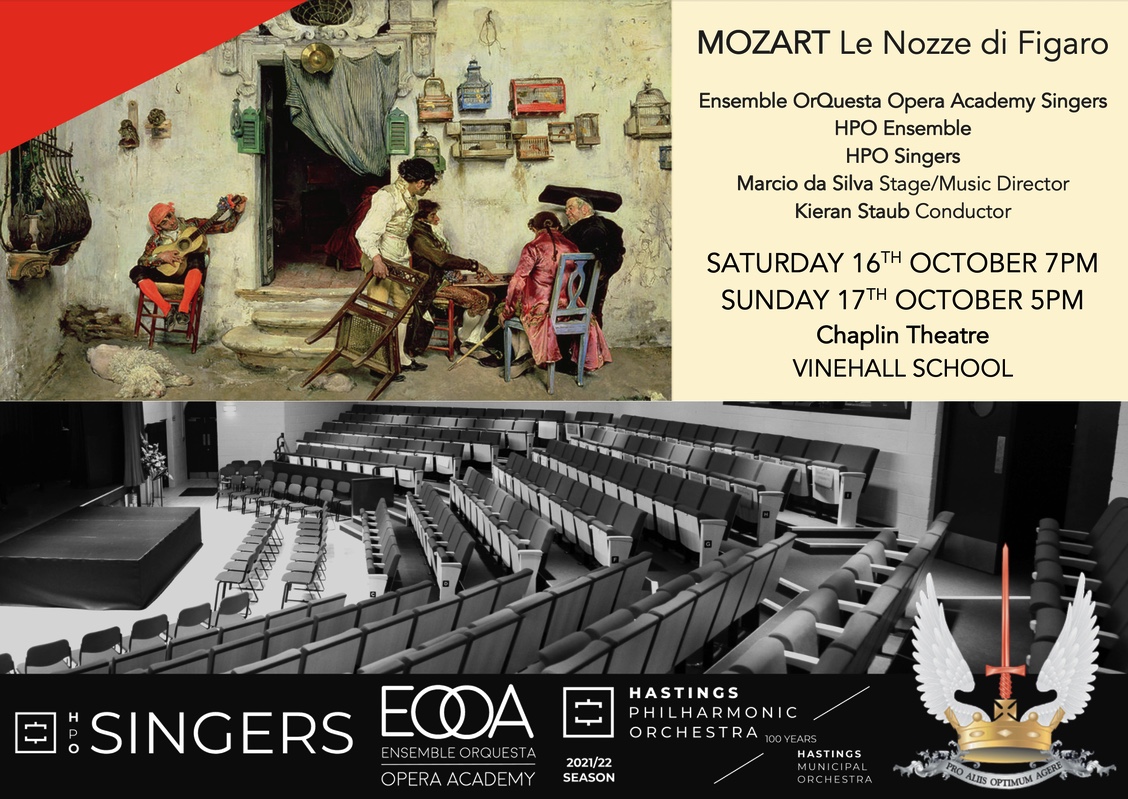Described as the “very first multi-faith oratorio to be premiered anywhere in the world” LIBERA NOS (‘Deliver us’) was commissioned by Peter Armstrong on behalf of interfaith organization, Musica Sacra. Written for five soloists, mixed choir, children’s choir and symphony orchestra the work contains over 60 individual vocal and instrumental pieces. Delayed by coronavirus the premiere finally took place in November 2022 at Bexhill’s De La Warr Pavillion.
I recently caught up with composer Polo Piatti to talk a little about the background to the project, the premiere at DLWP and where it is going from here.
Firstly I asked Polo why he was approached to write the work.
“I think one of the reasons they selected me is because I do not belong to a specific congregation…I was raised as a Catholic, at Jesuit school, but I didn’t practice much after my youth, although I am a spiritual person, open to spiritual matters…The second is that my music is accessible and the idea was to promote the idea of multi-faith using the instrument of an oratorio, and to promote it world-wide. For that you need music that is not too avant-garde, you need something more accessible.”
Before beginning to write the music, Polo embarked on a period of intense study, immersing himself in spiritual writings.
“The first thing I did was to order all the main sacred books from the five major religions. The Bible I had already. I ordered a copy of the Qur’an, the Torah, the Bhagavad Gita, all the Buddhist writings, and I started studying.”
Later on, he also added texts from indigenous people, from North & South America and some esoteric sources.
“The main objective is to call for unity instead of segregation. Every possible religion is somehow blindly going to segregation for one reason or another. Music is a uniting factor so cleverly they commissioned that work in my view.”
His approach to composing this music was largely an instinctual response to the texts, influenced of course by past experience of Judaeo-Christian music but also by specifically listening to traditional Indian, Jewish popular and sacred music. He also deliberately took opportunities to visit places of worship and specific events and met with leaders of different faith communities, particularly in London.
The work is structured around four sections, each grouping individual songs around a particular theme, deliberately drawing together texts from different traditions:
Creation, Law & Obedience, End of Time and Reconciliation and Salvation. These four themes had been identified by Musica Sacra but Polo was free to work within these themes, developing the material as he saw fit.
“I divided the parts into musical themes. I tried to respect all the oriental musical scales from other religions as well… I also created the figure of God as a young girl…I tried to imagine the concept of God that unites us all in the centre, and all the audience, and for me it is innocence…In my naïve way I imagine God to be very innocent and very good…For me that was represented by a girl, more than a boy…I don’t know why…”
Need for a uniting factor, an overarching view of humanity’s shared need for something beyond was the main theme. Because of this there were many texts that did not seem suitable for inclusion.
“I found many traditional sayings by native cultures much more in tune with that.”
After two years of study there was another two years writing and orchestrating the work.
A shocking development was the amount of hate directed at the composer as he worked on this piece. Many people, strongly aligned to a particular faith felt it was appropriate, perhaps even necessary, for them to strongly criticise, and even threaten him because of what he was attempting to achieve. As a result, extreme measures had to be taken at the premiere.
“I had security in the room.”
The support of the London Mozart Players ultimately made the performance possible. A very successful, well attended and well received premiere performance took place in the De La Warr Pavilion, Bexhill on Sunday 20th November. I was pleased to be among the audience – a diverse group of people of different faiths and none. I found myself sitting with a group of humanists.
There are plans now for the oratorio to be performed in Georgia, where Europe meets Asia. It would be part of the opening of a new multi-faith cathedral there.
I asked Polo what he hoped people would go away with after listening to Libera Nos.
“To just open the question in their minds. There are other people who have different beliefs but they are still good. Their paths may be different but they lead to the same, which is freeing us from the conflict of being human and becoming more spiritual.
I think I have achieved it because I have over 200 emails from people, really excited. I think this is one of my most successful major works to date. The vast majority says this has intrigued them now to investigate other faiths without being disloyal to their own. It is interesting to see what other people think! If you have an inquisitive mind, why not?
Some children think it’s only my way or no way. If you are an adult you have to have an inner question. It is a basic quality of a spiritual person to have an openness and respect everyone.”
There are also plans to release a video recording of the premiere. Large scale resources are required for presenting the oratorio but there are hopes that this recording, together with the performance in Georgia will lead to further occasions when it can be experienced live.
Polo is now working on a number of diverse projects, deliberately unconnected to Libera Nos, enjoying the freedom to write, exploring what it is to be a spiritual being but unrestricted by systems and expectations. Watch this space!
More information on Libera Nos can be found at https://ppsites.wixsite.com/liberanos
Stephen Page

 Lark Reviews will no longer be presenting news of events here. Instead local organisations have been asked to provide a few details including a website link and contact information which will be made available here as a point of reference. We hope this will become a useful resource in itself. Reviews of local events will still be posted as they are received from our correspondents.
Lark Reviews will no longer be presenting news of events here. Instead local organisations have been asked to provide a few details including a website link and contact information which will be made available here as a point of reference. We hope this will become a useful resource in itself. Reviews of local events will still be posted as they are received from our correspondents.


